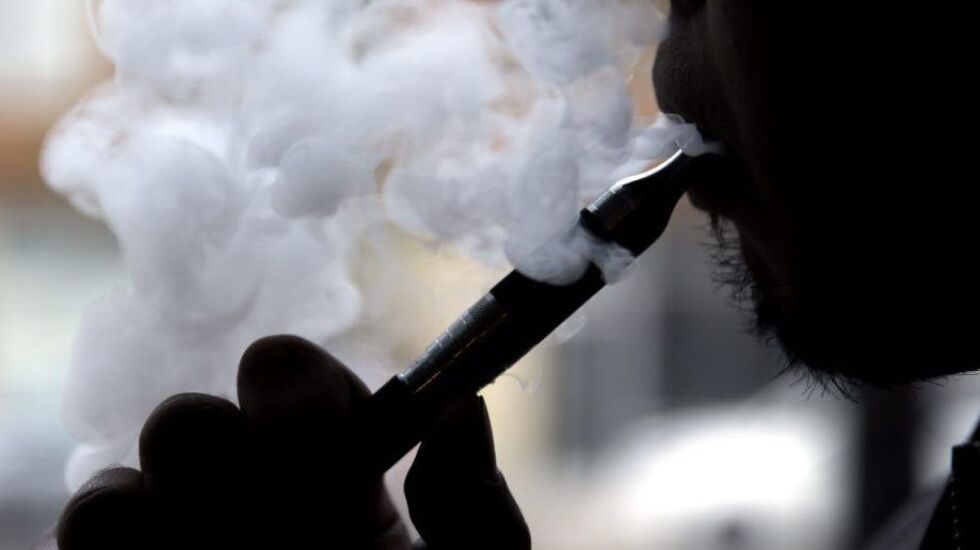
Kudos to the Chicago City Council.
We were pleased to read of the council’s recent actions to further protect Chicago’s youth from the harms of electronic cigarettes, vaping products and tobacco use. Years of strong city and state policies have reduced cigarette use among Chicago high school students by nearly 82% in the past five years.
But this success is threatened by a concurrent 56% increase in youth vaping.
The new ordinance will not only require special licenses for businesses that derive more than 20% of their gross revenue from the sale of electronic cigarettes, liquid nicotine products or electronic cigarette accessories, but also prevents new tobacco retail licenses for businesses in close proximity (1.000 feet) of existing retail tobacco store. Finally, the ordinance significantly increases fines for underage tobacco sales.
SEND LETTERS TO: letters@suntimes.com. We want to hear from our readers. To be considered for publication, letters must include your full name, your neighborhood or hometown and a phone number for verification purposes. Letters should be a maximum of approximately 350 words.
As the tobacco and vaping industries continue youth-focused marketing that prioritizes profits over health, it is critical the council works equally hard to counteract those harmful efforts and protect Chicago’s youth.
Erica Salem, senior director of strategy, programs and policy, Respiratory Health Association
Electricity isn’t the answer
The argument of Courtney Hanson and Gina Ramirez in their recent op-ed — that Chicago should switch to electricity in all our buildings to address cost and health concerns regarding natural gas — melts in the light of reality.
It is far more expensive to heat a home in Chicago with electricity than it is with gas; it has been more expensive for as long as anybody can remember and will continue to be even after the most recent rate hike request from People’s Gas. That cost gap would be even higher were it not for Chicago’s access to abundant supplies of nuclear power.
However, if Chicago were to transition to electricity for heating and cooking, even our nuclear capacity would be strained, unless it were to be expanded, and we would have to go to backup sources for generating electricity: natural gas and, to a lesser extent, coal, both of which are more detrimental to air quality than nuclear power.
Would the same people who are advancing the argument for electricity support the expansion, or continued existence, of nuclear power?
Ms. Hanson and Ms. Ramirez argue that “… if the transition is done well, it will address the affordability and health concerns.” But what if that transition does not go as smoothly as its ardent proponents assume, or at least hope, it will?
This is a big gamble, but gambles are always easier to take when we are betting with other people’s money.
Mark M. Quinn, Naperville







